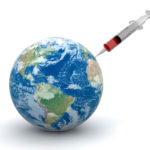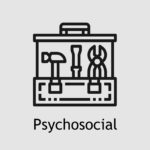A drug is a chemical substance that acts on the brain and nervous system, changing a person’s mood, emotion or state of consciousness. Drugs are often classified by the effect they have.
Stimulants, such as cocaine, make people feel full of energy. Depressants (or sedatives), such as heroin, make people feel relaxed. Hallucinogens, such as LSD, make people see, feel or hear things that are not real. Drug or substance misuse is when a person regularly takes one or more drugs to change their mood, emotion or state of consciousness.
Mental disorders and intimate partner violence perpetrated by men towards women

Anna Sri explores a recent longitudinal study exploring the links between mental disorders and intimate partner violence (IPV) perpetrated by men towards women, which finds that many psychiatric diagnoses were associated with an increased risk of IPV.
[read the full story...]









